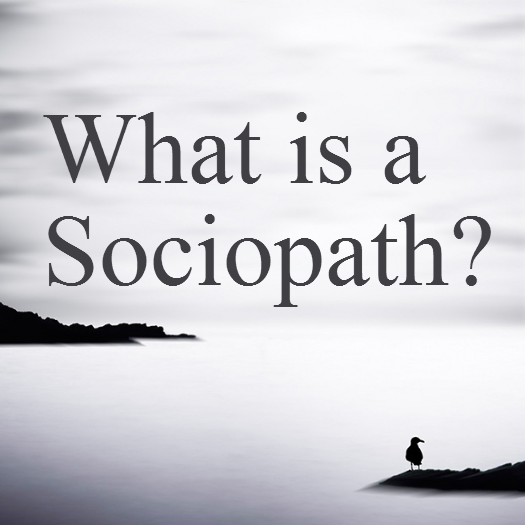With all my recent talk about Gavin being a Sociopath, I wanted to help make sure everyone understood what exactly that means. I’ve connected with a few other parents and families dealing with the challenge of living with a sociopath. I hope to be able to provide support to these families and any others going through the same or similar thing.
I’ve taken the steps to add a new forum to the My Autism Help Forums. This forum is dedicated to discussions and support in regards to Anti-Social Personality Disorder, otherwise known as Sociopathy.
While this doesn’t take away the pain of what I know these families are living with, I hope it helps to provide a sense that the aren’t as alone as they feel. I hope it provides them with connections to people who understand what they are going through. Most importantly, I want them to know that they aren’t crazy and there are people out there who know they aren’t… Those of you living with a Sociopath will know exactly what I mean.
I hope this helps….
You can find the forums here.
What is a Sociopath?
Courtesy of the Mayo Clinic.
What is Anti-Social Personality Disorder?
Antisocial personality disorder is a type of chronic mental condition in which a person’s ways of thinking, perceiving situations and relating to others are dysfunctional — and destructive. People with antisocial personality disorder typically have no regard for right and wrong and often disregard the rights, wishes and feelings of others.
Those with antisocial personality disorder tend to antagonize, manipulate or treat others either harshly or with callous indifference. They may often violate the law, landing in frequent trouble, yet they show no guilt or remorse. They may lie, behave violently or impulsively, and have problems with drug and alcohol use. These characteristics typically make people with antisocial personality disorder unable to fulfill responsibilities related to family, work or school.
Symptoms
Antisocial personality disorder signs and symptoms may include:
- Disregard for right and wrong
- Persistent lying or deceit to exploit others
- Using charm or wit to manipulate others for personal gain or for sheer personal pleasure
- Intense egocentrism, sense of superiority and exhibitionism
- Recurring difficulties with the law
- Repeatedly violating the rights of others by the use of intimidation, dishonesty and misrepresentation
- Child abuse or neglect
- Hostility, significant irritability, agitation, impulsiveness, aggression or violence
- Lack of empathy for others and lack of remorse about harming others
- Unnecessary risk-taking or dangerous behaviors
- Poor or abusive relationships
- Irresponsible work behavior
- Failure to learn from the negative consequences of behavior
Antisocial personality disorder symptoms may begin in childhood and are fully evident for most people during their 20s and 30s. In children, cruelty to animals, bullying behavior, impulsivity or explosions of anger, social isolation, and poor school performance may be, in some cases, early signs of the disorder.
Although considered a lifelong disorder, some symptoms — particularly destructive and criminal behavior and the use of alcohol or drugs — may decrease over time, but it’s not clear whether this decrease is a result of aging or an increased awareness of the consequences of antisocial behavior.
Causes
Personality is the combination of thoughts, emotions and behaviors that makes everyone unique. It’s the way people view, understand and relate to the outside world, as well as how they see themselves. Personality forms during childhood, shaped through an interaction of these factors:
- Genetics. These inherited tendencies are aspects of a person’s personality passed on by parents, such as shyness or having a positive outlook. This is sometimes called temperament.
- Environment. This means the surroundings a person grows up in, events that occurred, and relationships with family members and others. It includes such life situations as the type of parenting a person experienced, whether loving or abusive.
Personality disorders are thought to be caused by a combination of these genetic and environmental influences. Some people may have genes that make them vulnerable to developing antisocial personality disorder — and life situations may trigger its development.
There may be a link between an early lack of empathy — understanding the perspectives and problems of others, including other children — and later onset of antisocial personality disorder. Identifying these personality problems early may help improve long-term outcomes.
Risk Factors
Although the precise cause of antisocial personality disorder isn’t known, certain factors seem to increase the risk of developing or triggering it, including:
- Diagnosis of childhood conduct disorder
- Family history of antisocial personality disorder or other personality disorders or mental illness
- Being subjected to verbal, physical or sexual abuse during childhood
- Unstable or chaotic family life during childhood
- Loss of parents through traumatic divorce during childhood
- History of substance abuse in parents or other family members
Men are at greater risk of having antisocial personality disorder than women are.
Complications
Complications, consequences and problems of antisocial personality disorder include:
- Aggressiveness leading to verbal or physical violence
- Gang participation
- Reckless behavior
- Risky sexual behavior
- Child abuse
- Alcohol or substance abuse
- Gambling problems
- Being in jail or prison
- Homicidal or suicidal behaviors
- Relationship difficulties
- Occasional periods of depression or anxiety
- School and work problems
- Strained relationships with health care providers
- Low social and economic status, and homelessness
- Premature death, usually as a result of violence
Tests and Diagnosis
When doctors believe someone has antisocial personality disorder, they typically run a series of medical and psychological tests and exams to help determine a diagnosis. These evaluations generally include:
- Physical exam. This is done to help rule out other problems that could be causing symptoms and to check for any related complications.
- Lab tests. These may include, for example, a complete blood count (CBC), a thyroid function check, and screening for alcohol and drugs to determine if there are other causes for symptoms.
- Psychological evaluation. A doctor or mental health provider explores thoughts, feelings, relationships, behavior patterns and family history, which may include psychological tests about personality. He or she asks about symptoms, including when they started, how severe they are, how they affect daily life and whether similar episodes have occurred in the past. The doctor also asks about thoughts of suicide, self-injury or harming others.
A person with antisocial personality disorder is unlikely to provide an accurate account of his or her signs and symptoms. Family and friends may be able to provide helpful information.
Pinpointing the type of personality disorder
It’s sometimes difficult to determine if symptoms point to antisocial personality disorder or another personality disorder because some symptoms overlap more than one disorder. A key factor in diagnosis is how the affected person relates to others. Someone with antisocial personality disorder is likely to have an accurate — sometimes superior — understanding of others’ thinking with little awareness or regard for their feelings. This leads the person to act out and make other people miserable — with no feeling of remorse.
Diagnostic criteria
To be diagnosed with antisocial personality disorder, a person must meet the symptom criteria in the Diagnostic and Statistical Manual of Mental Disorders (DSM). This manual, published by the American Psychiatric Association, is used by mental health providers to diagnose mental illnesses and by insurance companies to reimburse for treatment.
Symptom criteria required for a diagnosis of antisocial personality disorder include:
- Being at least 18 years old
- Having had symptoms of conduct disorder before age 15, which may include such acts as stealing, vandalism, violence, cruelty to animals and bullying
- Repeatedly breaking the law
- Repeatedly conning or lying to others
- Being irritable and aggressive, repeatedly engaging in physical fights or assaults
- Feeling no remorse — or justifying behavior — after harming others
- Having no regard for the safety of self or others
- Acting impulsively and not planning ahead
- Being irresponsible and repeatedly failing to honor work or financial obligations
Treatments and Drugs
Antisocial personality disorder is very difficult to treat. People with this disorder may not even want treatment or think they need it. But people with antisocial personality disorder need treatment and close follow-up over the long term.
People with antisocial personality disorder may also need treatment for other conditions, such as depression, anxiety or substance use disorders. Medical and mental health providers with experience treating antisocial personality disorder and commonly associated conditions are most likely to be helpful.
The best treatment or combination of treatments depends on each person’s particular situation and severity of symptoms.
Psychotherapy
Psychotherapy, also called talk therapy, is sometimes used to treat antisocial personality disorder. Psychotherapy is not always effective, especially if symptoms are severe and the person can’t admit that he or she contributes to problems.
Psychotherapy may be provided in individual sessions, in group therapy, or in sessions that include family or even friends.
Medications
There are no medications specifically approved by the Food and Drug Administration to treat antisocial personality disorder. However, several types of psychiatric medications may help with certain conditions sometimes associated with antisocial personality disorder or with symptoms such as aggression. These medications may include antipsychotic, antidepressant or mood-stabilizing medications. They must be prescribed cautiously because some have the potential for misuse.
Skills for family members
If you have a loved one with antisocial personality disorder, it’s critical that you also get help for yourself. Mental health professionals with experience managing this condition can teach you skills to learn how to set boundaries and help protect yourself from the aggression, violence and anger common to antisocial personality disorder. They can also recommend strategies for coping.
Ask the people on your loved one’s treatment team for a referral. They may also be able to recommend support groups for families and friends affected by antisocial personality disorder.
Prevention
There’s no sure way to prevent antisocial personality disorder from developing in those at risk. Trying to identify those most at risk, such as children living with neglect or abuse, and offering early intervention may help. Getting appropriate treatment early, and sticking with it for the long term, may prevent symptoms from worsening.
Because antisocial behavior is thought to have its roots in childhood, parents, teachers and pediatricians may be able to spot early warning signs. While diagnosis of antisocial personality disorder generally isn’t done before age 18, children at risk may have symptoms of conduct disorder, especially behavior that involves violence or aggression toward others, such as:
- Bullying
- Conflict with peers, family members and authority figures
- Stealing
- Cruelty to people and animals
- Fire starting and vandalism
- Use of weapons
- Sexual assault
- Repeated lying
- Problem behaviors in school and poor academic performance
- Gang involvement
- Running away from home
Early, effective and appropriate discipline, lessons in behavioral skills, family therapy, and psychotherapy may help reduce the chance that at-risk children go on to become adults with antisocial personality disorder.




I appreciate your posting this. It is quick & informative. I am 35 & have ASD. I was misdiagnosed with schizo-affective disorder, bullied & antagonized by hospital staff & doctors and told by a “specialist” that I would wind up either dead or in prison if not the morgue in 2006.
thank you for the great explanation. I am so sorry yall are having to deal with this.
Thank you as always… I appreciate it. ☺
I know you do Rob. I can’t say it enough how much your blog has saved the little sanity I have left. I am sorry Gavin is going thru this. your expanation not only helps me understand what is going on with yall but I will have this knowledge if i run into a situation with someone else and i can be more educated and compassionate.